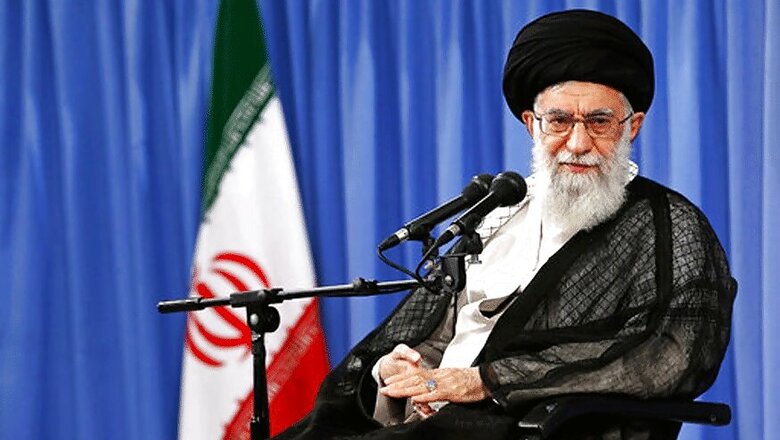
views
Tehran: Iran's supreme leader hit out at the United States and Saudi Arabia during the funerals on Friday for those slain in the first attacks in the country claimed by the Islamic State group.
The assault by gunmen and suicide bombers on Wednesday on Tehran's parliament complex and the shrine of revolutionary leader Ayatollah Ruhollah Khomeini killed 17 people and wounded more than 50.
Mourners were paying respects to those killed at a ceremony in parliament on Friday morning, in the presence of newly re-elected moderate President Hassan Rouhani. Supreme leader Ayatollah Ali Khamenei initially played down the attacks this week, describing them as "firecrackers" that "will not have the slightest effect on the will of the people".
At today's funeral, however, he turned his wrath for the attacks on the United States and Saudi Arabia, his country's fiercest rivals.
"Such acts will have no other result than to reinforce hatred for the US government and its agents in the region, like the Saudi (government)," Khamenei wrote in a message of condolence to the families of the dead.
Parliament speaker Ali Larijani also attacked the United States and Saudi Arabia, which he called "a tribal state very far from anything like a democracy".
In a speech at the ceremony, Larijani denounced US sanctions against Iran over its ballistic missile programme.The US "knows that the Revolutionary Guard and its Quds force are the most important regional forces fighting terrorists", he said.
The imposition of such sanctions "demonstrates their alignment with terrorists in the region", said the speaker, a moderate conservative.
After prayers, a procession was to leave Tehran University for the Behesht-e-Zahra cemetery, near the Khomeini mausoleum 13 kilometres south of the Iranian capital.
The attacks, which struck two of the country's most symbolic landmarks, were carried out by five armed men, including suicide bombers who blew themselves up. The intelligence ministry said they were Iranians who had joined the Islamic State group and travelled to its strongholds in Iraq and Syria before returning home.
Iran is a key fighting force against IS and other groups in Iraq and Syria, and the Sunni jihadists consider Shiite Muslims to be apostates.
Shias make up roughly 90 per cent of Iran's population, but the country also has a sizeable Sunni minority, particularly around its restive borders with Iraq and Pakistan.

















Comments
0 comment